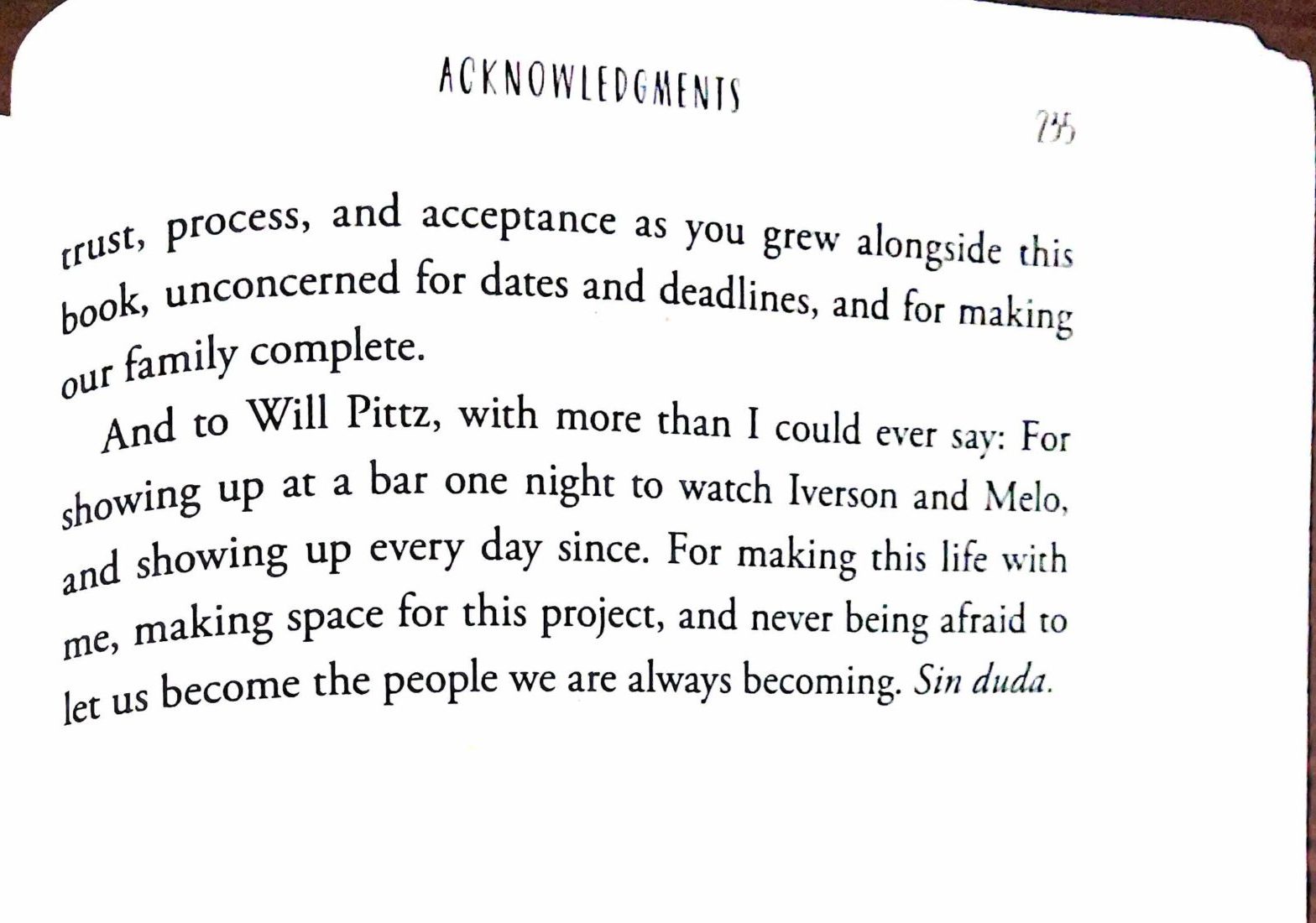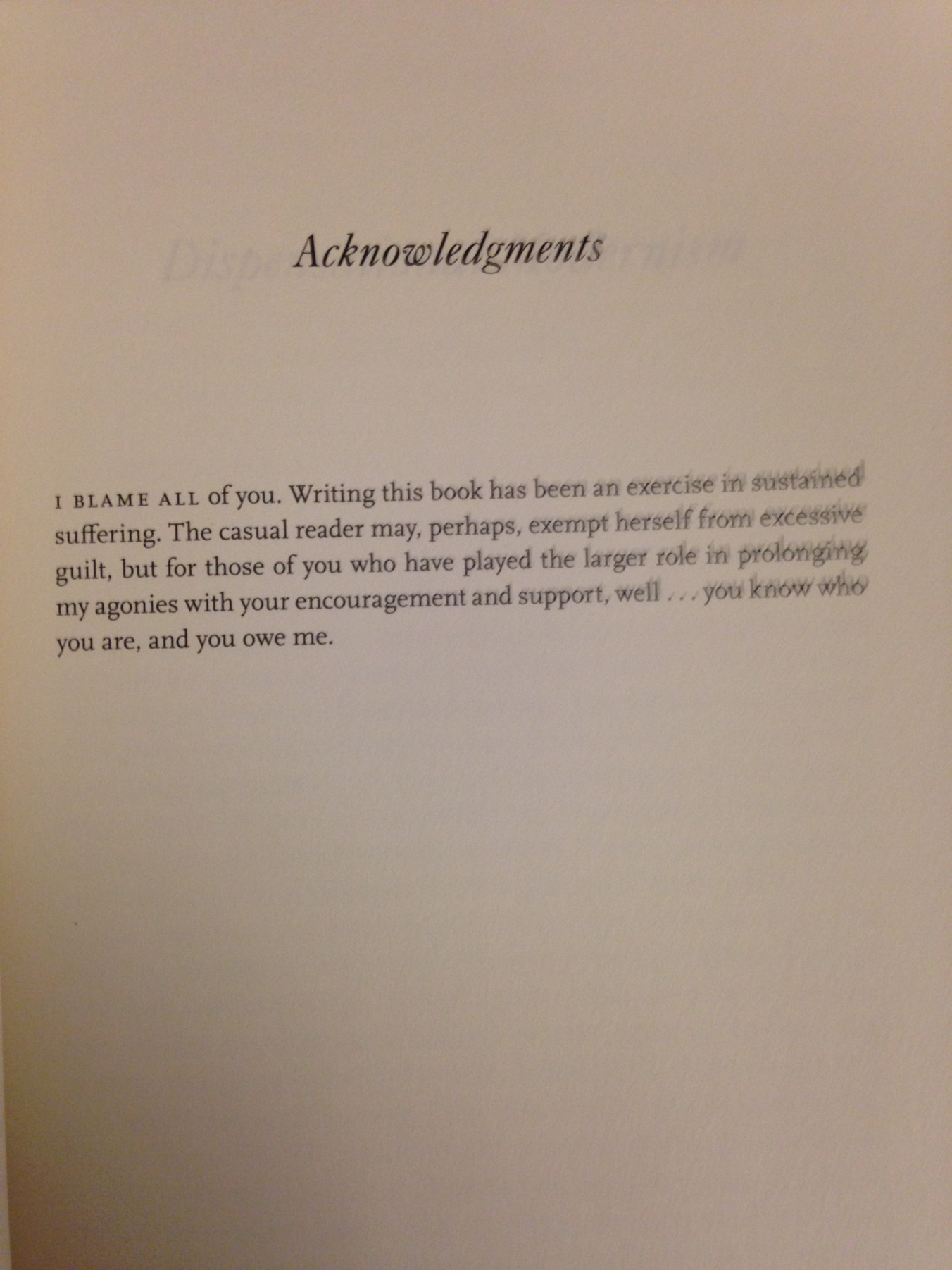Have you ever flipped to the back of a book and wondered what all those "thank you" notes are about? Book acknowledgements might seem like just another page to skim through, but trust me, they’re more than that. These sections are like a secret handshake between authors and the people who helped bring their stories to life. It’s where the magic of collaboration gets its due recognition. So, before we dive deep, let’s give these acknowledgements the credit they deserve.
Think of acknowledgements as the Oscars of the literary world. You know, those heartwarming moments when someone takes the stage and thanks everyone from their dog to their high school English teacher. In a book, it’s the author’s way of saying, “Hey, I couldn’t have done this alone.” It’s personal, heartfelt, and often hilarious if you’re paying attention. And yeah, it’s also super important for understanding the behind-the-scenes work that goes into writing a book.
Here’s the thing: book acknowledgements aren’t just for the author’s inner circle. They’re for readers too. They give us a peek into the author’s world, the struggles they faced, and the people who supported them along the way. It’s like getting a backstage pass to the creative process. So, whether you’re an avid reader or someone who just picked up their first novel, this is your chance to learn why these pages matter so much.
- 2 Piece Going Out Sets The Ultimate Guide To Stylish And Comfortable Outfits
- How Many Rings Does Scottie Pippen Have Unveiling The Legacy Of A Basketball Legend
What Are Book Acknowledgements Really About?
Let’s break it down. Book acknowledgements are those pages at the end—or sometimes the beginning—of a book where the author thanks everyone who helped them along the way. It’s not just about being polite; it’s about acknowledging the teamwork that goes into creating a book. Sure, the author writes the words, but there’s a whole army of people working behind the scenes to make it happen.
Think about it: editors, proofreaders, agents, publishers, family members, friends, beta readers, and even random strangers who gave feedback all play a role. Acknowledgements are the author’s way of saying, “None of this would’ve been possible without you.” It’s a shoutout to everyone who contributed, big or small. And let’s be real, sometimes those shoutouts can get pretty wild.
Why Do Authors Write Acknowledgements?
Writing acknowledgements isn’t just a formality. It’s a way for authors to express gratitude and show appreciation for the people who supported them. For many, it’s also a chance to reflect on the journey of writing the book. Some authors use this space to share personal stories, funny anecdotes, or even deep reflections about their creative process.
- Dungy Son A Rising Star In The Spotlight
- Hot Moments Between Mom With Son A Heartwarming Journey Through Lifes Bonds
But here’s the kicker: it’s not always easy. Writing acknowledgements can be emotional. Authors often pour their hearts into these pages, thanking people who’ve been there through thick and thin. And sometimes, it’s not just about the people—they might thank their pets, their favorite coffee shop, or even the universe for aligning the stars just right. It’s a reminder that writing a book is rarely a solo endeavor.
Types of Book Acknowledgements
Not all acknowledgements are created equal. Some are short and sweet, while others are long and detailed. Here’s a quick breakdown of the different types you might encounter:
- Personal Acknowledgements: These are usually dedicated to family, friends, and loved ones who supported the author emotionally or financially.
- Professional Acknowledgements: Authors often thank their editors, publishers, agents, and other industry professionals who helped bring the book to life.
- Community Acknowledgements: Sometimes, authors thank entire communities or groups that inspired or supported them, like writing workshops or online forums.
- Humorous Acknowledgements: Let’s not forget the fun ones. Some authors use this section to crack jokes, thank their pets, or even roast their editors (in a good-natured way, of course).
Each type serves a different purpose, but they all share one thing in common: they’re a reflection of the author’s journey and the people who made it possible.
How Long Should Acknowledgements Be?
There’s no one-size-fits-all answer to this question. Some authors keep it short and to the point, while others write pages upon pages of gratitude. It really depends on the author’s style and the scope of their project. For example, a debut novelist might have a shorter list of people to thank compared to a seasoned author who’s worked with multiple publishers and collaborators.
That said, there’s a general consensus that acknowledgements shouldn’t overshadow the book itself. They’re meant to complement the story, not compete with it. So, whether it’s a paragraph or a chapter, the key is to make it meaningful and heartfelt.
The Importance of Acknowledgements in Publishing
Acknowledgements might seem like a small detail, but they play a big role in the publishing world. For starters, they help build relationships between authors and their collaborators. By publicly thanking someone, authors are showing their appreciation and strengthening those professional bonds. It’s like a virtual handshake that says, “Let’s work together again.”
But that’s not all. Acknowledgements also serve as a form of validation for the people involved. Imagine being an editor who worked tirelessly on a manuscript, only to see your name mentioned in the acknowledgements. It’s a small gesture, but it means a lot. It shows that your work mattered and that the author values your contribution.
Who Should Be Acknowledged?
This is where things get interesting. While there’s no hard-and-fast rule about who to include, most authors follow a general guideline:
- Family and Friends: These are the people who supported the author emotionally, whether by listening to their ideas or encouraging them during tough times.
- Professional Collaborators: Editors, agents, publishers, and designers all deserve a mention for their role in bringing the book to life.
- Mentors and Influencers: Authors often thank people who inspired them, whether through their writing, teaching, or mentorship.
- Communities and Organizations: Writing groups, workshops, and literary communities can all play a role in an author’s success.
Ultimately, the decision comes down to the author. They get to choose who to thank and how to phrase it. And that’s part of what makes acknowledgements so personal and unique.
Writing Your Own Acknowledgements
If you’re an aspiring author, you might be wondering how to write your own acknowledgements. The good news is, it’s not as daunting as it seems. Here’s a step-by-step guide to help you get started:
Step 1: Make a List
Start by jotting down everyone who’s contributed to your book. Think about the people who’ve supported you, both personally and professionally. Don’t forget to include anyone who’s provided feedback, advice, or encouragement along the way.
Step 2: Prioritize
Once you’ve made your list, prioritize the people who’ve had the biggest impact. You don’t have to thank everyone, but make sure the most important contributors get a mention.
Step 3: Be Specific
Instead of saying, “Thank you to everyone who helped,” try to be specific. Mention names, roles, and specific contributions. This makes the acknowledgement more personal and meaningful.
Step 4: Add Your Voice
Finally, don’t forget to add your own voice. Whether you’re funny, serious, or somewhere in between, let your personality shine through. It’s your book, after all, so make the acknowledgements reflect who you are.
Common Mistakes to Avoid
Writing acknowledgements isn’t rocket science, but there are a few pitfalls to watch out for:
- Forgetting Important People: Double-check your list to make sure no one’s left out. You don’t want to accidentally snub someone who deserves a mention.
- Being Too Vague: Avoid generic phrases like “Thanks to everyone who helped.” Be specific about who did what.
- Making It Too Long: While it’s tempting to thank everyone under the sun, remember that readers still want to get back to the story. Keep it concise and meaningful.
By avoiding these mistakes, you’ll create acknowledgements that are both heartfelt and impactful.
Examples of Great Acknowledgements
Let’s take a look at some of the best acknowledgements in literature. These examples show how authors can use this section to express gratitude in creative and memorable ways:
Example 1: Neil Gaiman’s “American Gods”
Gaiman’s acknowledgements are a masterclass in gratitude. He thanks everyone from his editor to his fans, and even throws in a few jokes along the way. It’s a perfect blend of professionalism and personality.
Example 2: Chimamanda Ngozi Adichie’s “Americanah”
Adichie’s acknowledgements are deeply personal. She thanks her family, friends, and mentors, often sharing anecdotes about how they’ve influenced her work. It’s a touching reminder of the power of community and support.
Example 3: David Foster Wallace’s “Infinite Jest”
Wallace’s acknowledgements are legendary for their length and detail. He thanks everyone from his professors to his fellow writers, and even includes a few footnotes for good measure. It’s a testament to his meticulous nature and his appreciation for collaboration.
How Acknowledgements Reflect the Author’s Personality
Acknowledgements aren’t just about thanking people; they’re also a reflection of the author’s personality. Some authors are serious and formal, while others are funny and irreverent. For example, Terry Pratchett’s acknowledgements often included jokes and references to his beloved Discworld series. It’s a way for authors to connect with readers on a personal level and show them who they really are.
Think about it: when you read an author’s acknowledgements, you’re getting a glimpse into their world. You’re seeing who they value, what they care about, and how they view the world. It’s like a mini-biography that gives context to their work.
What Readers Can Learn from Acknowledgements
For readers, acknowledgements can be a treasure trove of information. They can reveal the author’s influences, collaborators, and even their sense of humor. It’s a chance to learn more about the book and the people who made it possible. Plus, it’s always fun to see who gets a shoutout and why.
Tips for Reading Acknowledgements
Now that you know how important acknowledgements are, here are a few tips for reading them:
- Pay Attention to Names: You might discover new authors, editors, or publishers to follow.
- Look for Patterns: Some authors frequently collaborate with the same people, which can be a sign of a strong working relationship.
- Enjoy the Humor: Acknowledgements can be surprisingly funny, so don’t skim over them too quickly.
By reading acknowledgements with an open mind, you’ll gain a deeper appreciation for the collaborative nature of writing and publishing.
Conclusion: Why Acknowledgements Matter
In conclusion, book acknowledgements might seem like just another page in a book, but they’re so much more than that. They’re a celebration of collaboration, gratitude, and the people who make books possible. Whether you’re an author, a reader, or someone who works in publishing, acknowledgements offer a unique perspective on the creative process.
So, next time you pick up a book, take a moment to read the acknowledgements. You might be surprised by what you discover. And if you’re writing your own book, don’t forget to give credit where credit’s due. After all, writing might be a solitary pursuit, but publishing is a team effort. And that’s something worth celebrating.
Now, go ahead and share this article with your friends, leave a comment, or check out some of our other posts. Together, let’s keep the conversation going and give book acknowledgements the love they deserve!
- Seth Green Kids A Fun Dive Into Parenthood And Family Life
- Why The Givenchy Black Necklace Is A Musthave For Every Fashionista


